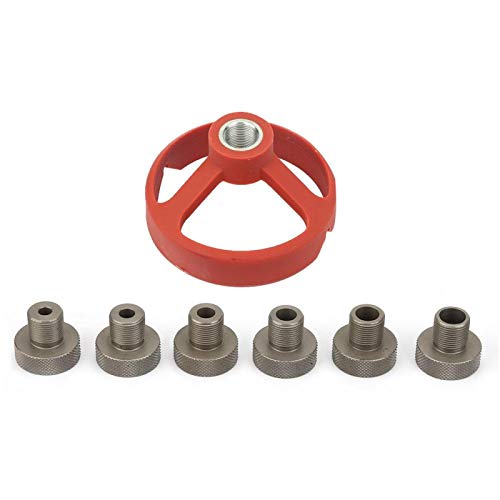I just received this yesterday:
Weight Loss May Be Fleeting With Lap Sleeve Gastrectomy
Significant number see weight regain, return of metabolic problems
- by Parker Brown
Staff Writer, MedPage Today
- This article is a collaboration between MedPage Today® and:
Action Points
- Long-term follow-up of obese patients undergoing laparoscopic sleeve gastrectomy (LSG) showed significant decreases over time in both the percentage of excess weight loss (%EWL) and remission rates of diabetes.
- Critical gaps in knowledge, a paucity of comparative trials, incomplete follow-up, lack of standardized definitions for changes in health status, and the tendency to favor surgical treatment options suggest caution in interpreting data on the effectiveness of bariatric surgery.
A long-term follow-up of laparoscopic sleeve gastrectomy (LSG) patients showed significant weight regain and a decrease in remission rates of diabetes.
Researchers reviewed 443 cases of LSG from 2006 to 2013 by the same surgery team and found that within 5 years, the percentage of excess weight loss declined from 77% to 56%, and "complete remission of diabetes was maintained in only 20% of patients."
In addition, remission of hypertension was maintained in 45.5% of patients, and there were significant differences in levels of high-density lipoprotein cholesterol levels and triglyceride levels, according to the authors, who were led by
Andrei Keidar, MD, at the Beilinson Hospital in Israel.
They published their results on Wednesday in
JAMA Surgery.
In an
accompanying editorial,
Anita P. Courcoulas, MD, MPH, at the University of Pittsburgh School of Medicine, urged caution in interpreting the findings, writing that answers about the effectiveness of bariatric surgery will not be easy to come by.
"It will take time, patience, and a willingness to avoid a rush to judgment," she wrote. "In the meantime, clinicians and prospective patients will need to discuss and weigh the evidence in a dynamic exchange driven not always by final conclusions but by the most current available data."
LSG began as an intervention for high risk patients before they underwent laparoscopic Roux-en-Y gastric bypass and as the first step of biliopancreatic diversion duodenal switch. But doctors soon realized that it could be done on its own, and since then, it has been growing in popularity. But there are still
relatively few data on its long-term effects, according to Keidar and colleagues.
Advertisement
In an email to
MedPage Today, Craig Primack, MD, an obesity specialist at the Scottsdale Weight Loss Center in Arizona, wrote that doctors may be surprised at the lack of quality, long-term data for LSG.
"If I am going to let a surgeon cut out my stomach (especially as many now consider this procedure the procedure of choice) I would sure like to know what will happen to my weight and other comorbidities down the road," he wrote. "We have much better data for the gastric bypass well over 10 years and it shows much better results and therefore in my opinion, a much better surgery."
In the latest study, Keidar and colleagues looked at how patients fared at one, three, and five years after surgery. More than 1,000 patients underwent bariatric surgery during the time frame that the researchers looked at, and less than half underwent LSG.
Remission of diabetes was defined as a normal fasting glucose level (<100 mg/dL) with no use of insulin or oral medications. Partial remission was defined as a reduction of medication dosage or cessation of medication use despite abnormal laboratory results. Complete data were not available for a relatively high number of patients: at one year, complete data were available for 241 of the patients (54.4%), at three years for 128 of 259 patients (49.4%), and at five years for 39 of 56 patients (69.6%).
The mean preoperative body mass index was 43.9, noted the authors. At one year, the percent of excess weight loss was 76.8%. It was 69.7% at year three and 56.1% at year five.
Other results included:
- Complete remission of diabetes was maintained in 50.7%, 38.2%, and 20.0% of patients at one, three, and five years of follow-up.
- Complete remission of hypertension was maintained in 46.3%, 48.0%, and 45.5% of patients.
- Significant changes in HDL cholesterol levels between preoperative and postoperative measurements, at 52.8, 56.8, and 52.4 mg/dL (P<0.001).
- Significant changes in triglyceride levels between preoperative and postoperative measurements, at 106.3, 107.2, and 126.4 mg/dL (P<0.001).
- Significant decrease of low-density lipoprotein cholesterol levels at year one and three (P=0.04) and a non-significant decrease at year five.
The changes in total cholesterol did not reach statistical significance, according to the authors.
Before undergoing surgery, 82 of the patients had been diagnosed with type 2 diabetes, 65 with impaired fasting glucose, 110 with hypertension, 155 with hypercholesterolemia, 109 with hypertriglyceridemia, and 55 with hyperuricemia. At one year, 64.5% of the patients stopped taking medications for type 2 diabetes, at three years 48.3% stopped, and at five years 55.5% stopped.
Courcoulas wrote that there are gaps in the knowledge about how effective LSG is. "These critical gaps in knowledge pose a significant problem for people considering a potential surgical option to treat severe obesity," she wrote. "Contributing to these deficits are the paucity of comparative trials, incomplete follow-up, a lack of standardized definitions for changes in health status (e.g., diabetes mellitus remission), and the tendency to a rush to judgment in favor of surgical treatment options."
Many of the studies done on LSG use different end points, wrote the authors, making it difficult to compare. In addition, the term "partial remission" is used to mean different things in the studies.
"In our opinion, the presence of obesity-related comorbidities should play a major role when choosing the appropriate procedure for a specific patient," wrote the authors. "For example, performing an operation that yields a low resolution rate of hyperlipidemia translates into lifelong medical treatment in a young patient with significant hyperlipidemia. In that case, a malabsorptive procedure might be more beneficial than an LSG procedure."
The study was done at a single site and the results may not be generalizable. Also, many of the patients were lost to follow-up, which may have led to a bias, noted the authors. The small sample size at five years precluded conclusions about the changes in comorbidities, and the follow-up was not continuous for all of the patients.
The authors of the study disclosed no relevant relationships with industry.
Courcoulas disclosed receiving grants from Nutrisystem, Ethicon, and Covidien, as well as being a project consultant for Ethicon and Apollo Endosurgery.


































